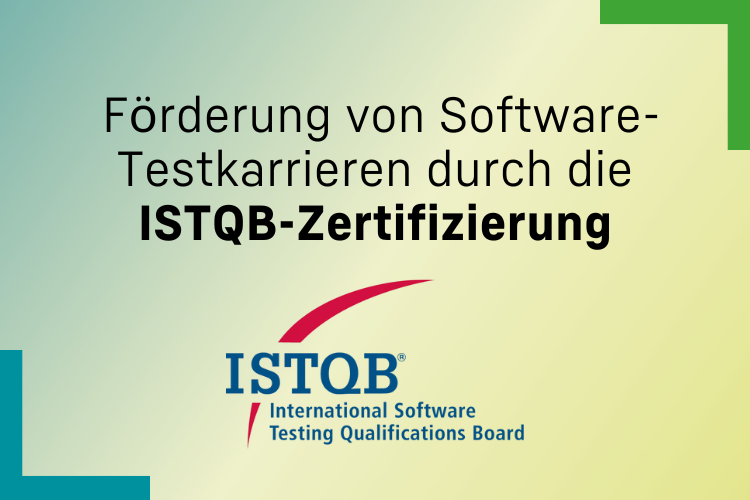by Aseel Al-Dabbagh
Share
by Aseel Al-Dabbagh

Introduction: In the ever-evolving field of software development, quality assurance plays a pivotal role in delivering flawless products. The International Software Testing Qualifications Board (ISTQB) certification stands out as a beacon for professionals aiming to validate their expertise and enhance their career trajectory in software testing.
Why ISTQB?
ISTQB certifications offer a structured approach to the knowledge and practices of software testing, setting a global standard that is recognized across industries. This certification not only enriches a tester’s understanding but also boosts professional credibility in the competitive job market.
Benefits of ISTQB Certification for Testers and Organizations:
- For Testers: Achieving an ISTQB certification opens doors to advanced career opportunities, potentially higher salaries, and recognition as a qualified testing professional. It arms testers with the latest methodologies and best practices, preparing them for complex testing challenges.
- For Organizations: Certified testers bring a standardized approach to testing processes, enhancing the efficiency and effectiveness of testing teams. This leads to improved product quality, customer satisfaction, and reduced development costs through early detection of defects.
Difference between the ISTQB certified and non-certified tester:
A certified tester showcases a standardized level of knowledge and understanding of testing methodologies, adhering to global testing practices. They bring a recognized proficiency to the team, potentially enhancing the quality of work through structured approaches. Conversely, a non-certified tester might rely more on practical experience and personal methodologies. While hands-on experience is invaluable, the blend of formal knowledge and experience often leads to a more comprehensive testing strategy, making certified testers an asset for aligning with industry best practices and methodologies.
The ISTQB Certification Structure:
Foundation Level (CTFL v4.0):
This level serves as the entry point into the ISTQB certification scheme and covers fundamental testing principles and terminology. It’s designed to ensure testers have a basic understanding of key concepts in software testing, including the life cycle, testing techniques, and management. The updated CTFL 4.0 syllabus aims to align with modern software development approaches, incorporating Agile concepts alongside traditional testing basics. Training for this level requires at least 19 hours of instruction, covering six chapters of content.
Prerequisites: There are no formal prerequisites for the Foundation Level certification.
Skills and Knowledge Areas:
- Basic concepts in software testing
- Understanding of software development models
- Test design techniques
- Test management principles
Example Topics:
- The purpose and fundamentals of software testing
- Differences between various testing techniques
- How to design and prioritize test cases
Advanced Level:
For individuals who wish to specialize further, the Advanced Level certifications dive deeper into specific roles such as Test Manager, Test Analyst, and Technical Test Analyst. Each role focuses on different areas of expertise, from strategic test planning and risk management for Test Managers to detailed test design techniques for Test Analysts and technical testing skills for Technical Test Analysts.
Prerequisites: To take an Advanced Level exam, candidates must hold the Foundation Certificate and typically need 3 years of practical experience in the field of software testing
Skills and Knowledge Areas:
- For Test Managers: Strategic test planning, risk management, team leadership
- For Test Analysts: Requirements analysis, test design, and execution
- For Technical Test Analysts: White-box testing, test automation, non-functional testing techniques
Example Topics:
- Developing a test strategy for complex software projects
- Analyzing requirements to create effective test cases
- Applying technical testing techniques and tools
Expert Level:
This level is targeted at highly experienced testing professionals seeking to achieve mastery in specific areas of testing. The Expert Level certifications require a deep understanding of testing methodologies, the ability to lead testing projects, and innovate testing practices within an organization.
Prerequisites: Candidates must have the Advanced Level certification relevant to their chosen Expert Level module and typically need 5 years of practical experience in the field of software testing, with at least 2 years in the specific Expert Level topic.
Skills and Knowledge Areas:
- Advanced knowledge in specialized areas of testing
- Leadership and strategic planning in testing projects
- Innovation in testing practices and methodologies
Example Topics:
- Designing advanced test strategies incorporating new technologies
- Leading and managing high-performing testing teams
- Developing innovative testing practices for emerging software trends
ISTQB’s certifications are globally recognized, ensuring that certified individuals meet high standards set by the industry. The certifications provide a comprehensive way to validate testing skills and knowledge, offering significant benefits to professionals, employers, and training providers
The Roadmap to Certification: What It Takes to Achieve These ISTQB Certifications
- Understanding of Syllabi: Each certification level has a detailed syllabus that outlines the knowledge and skills required. Candidates need to thoroughly understand the contents of these syllabi, as the examinations are based on them.
- Preparation and Study: Candidates should dedicate time to study the relevant syllabus and ISTQB glossary to understand the terminology, principles, and practices within the scope of the certification. Preparation can be self-study or through attending accredited training courses.
- Practical Experience: Practical experience in software testing is crucial, especially for the Advanced and Expert Levels. This experience helps in understanding and applying the theoretical knowledge acquired through study.
- Exam Preparation: Apart from studying the syllabus, candidates should also prepare by taking practice exams. These practice exams provide a good understanding of the exam format and types of questions asked.
- Continuous Learning: The field of software testing is always evolving, so candidates should stay updated with the latest trends, techniques, and best practices in software testing.
ISTQB certification exams test knowledge across different areas of software testing. The Foundation Level exam covers basics and is multiple-choice, focusing on fundamental principles and terminology. Advanced Level exams are more detailed, requiring an understanding of complex testing methodologies and management practices. Expert Level exams get into specialized areas of testing. Preparation involves studying the syllabus, possibly attending training courses, and understanding practical applications of testing concepts. Success in these exams demonstrates a solid grasp of software testing standards and practices.
Our Conclusion about ISTQB certification:
ISTQB certification is more than just a credential; it’s a career milestone for software testers, signifying a commitment to excellence and continuous learning. Whether you’re starting your journey in software testing or looking to elevate your expertise, ISTQB offers a clear path to achieving your professional aspirations.
Adding a certification to your resume, such as ISTQB, undeniably showcases a recognized level of knowledge and commitment to the testing profession. However, it’s crucial to understand that certification alone doesn’t guarantee excellence in the field. Being a good tester also requires practical experience, critical thinking, adaptability, and strong communication skills—qualities that are honed through hands-on work and continuous learning beyond the certification syllabus. Certification is a steppingstone, not the destination, in a tester’s journey to excellence.




